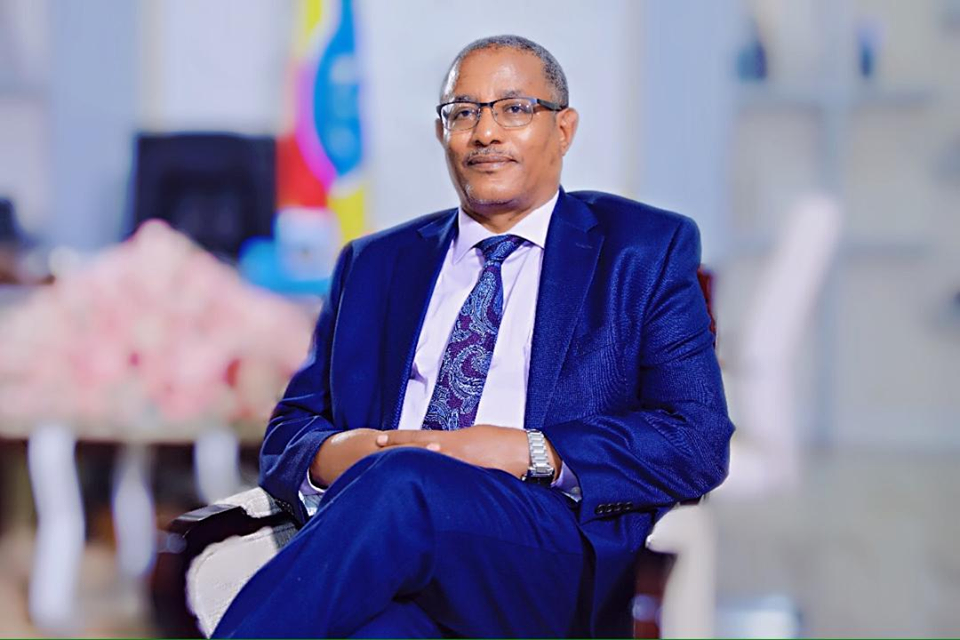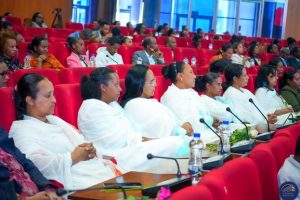
• Urge Egypt to embrace cooperation
ADDIS ABABA– Ethiopia, as founding member of prestigious international and continental organizations like the United Nations as well as the African Union and its precursor OAU, promotes the concept of collective security and multilateralism at international, regional and sub-regional levels, said Foreign Affairs Minister GeduAndargachew.
In a letter conveyed to the UN Security Council on May 14, 2020, Gedu mentioned Ethiopia’s endeavors to create a fair and balanced cooperation with Nile riparian countries through the Nile Basin Initiative (NBI) and the agreement on the Nile River Basin Cooperative Framework (CFA).
He also unveiled what he described as a continued unilateral approach by Egypt manifested in rejecting region-wide cooperative frameworks on the Nile River.
Elaborating on this, he said Egypt constructed the High Aswan Dam and new canals without any consultation with regional stakeholders. “It is worth nothing that Egypt ignored Ethiopia’s protests in the years, 1956, 1957, 1980, and 1997 objecting to the significant harm Egypt’s water infrastructure would cause to Ethiopia and other Nile riparian states.”
Regarding the ongoing trilateral discussions on the filling and annual operation the GERD, he underscored that the country’s position is guided by accepted principles on equitable and reasonable utilization and causing of no significant harm as well as cooperation.
Indicating as the principles are stipulated in the Declaration of Principles (DoP), signed in March 2015, by Egypt, Ethiopia and Sudan, he went on to say that in unprecedented manner, Ethiopia took the initiative to establish International Panel of Experts (IPoE), in 2011 and invited Egypt and the Sudan, enabling them to participate in the evaluation of the design and study document of the GERD.
“Ethiopia in good faith also accepted and applied the recommendation so the IPoE, which was then appreciated by Egypt and the Sudan as recorded in the DoP.”
The Minister also underlined as Egypt’s insistence to “historic rights” and “current use” as a baseline to conduct the IPoE recommended studies curtailed works of the Tripartite National Committee (TNC) that Ethiopia together with the lower riparian countries facilitated.
Other similar efforts of Ethiopia went to no avail due to Egypt’s stubborn position, he added.
Concerning the draft document that Egypt claimed to have initiated in February 2020, he said:“it is crucial to note that the tripartite negotiation on the GERD has not resulted in any agreement. During the negotiation process, despite Ethiopia’s request to postpone the meeting that was scheduled for 27-28 February 2020, consultations were held in our absence.”
He also cited outstanding differences on matters of fundamental importance that have far reaching consequences for the interests of Ethiopia and contravening the DoP.
It also enlisted the differences as: “First severely limiting the capacity of the dam to generate electricity, second forming rules that are impractical for dam filling and operation which defy accepted practices; third going beyond the scope of the negotiations on the GERD and inhibiting the rights of the present and future generations by curtaining upstream development; forth undermining Ethiopia’s sovereign right to operate its own dam; and forth, proffering watersharing agreement side-lining the CFA and ignoring the rights of other Nile riparian countries with combined population of over 25 million.”
The Ethiopian Herald May 21/2020
BY STAFF REPORTER





